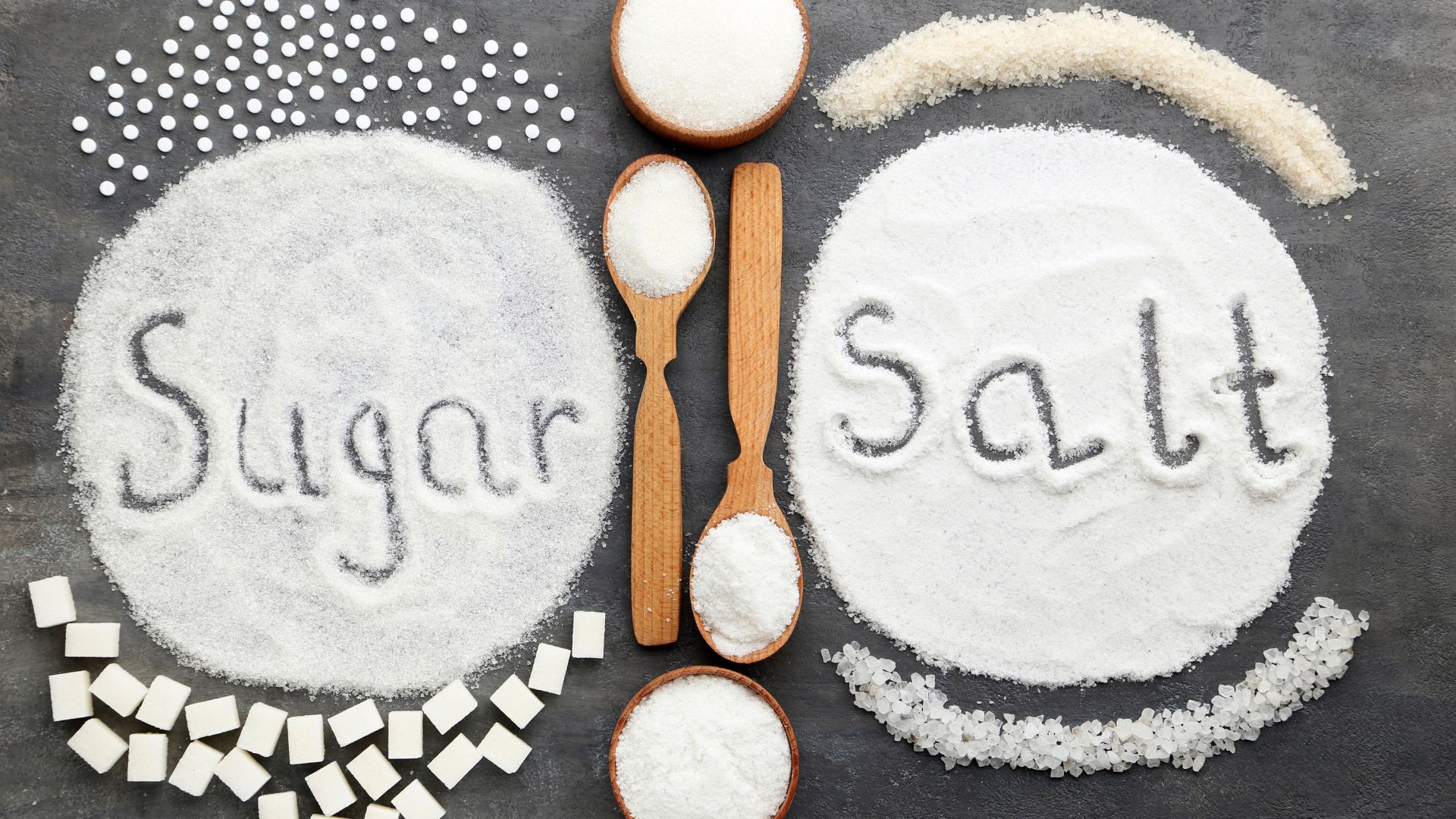
05 Dec What’s the Recommended Salt and Sugar Intake?
One of the ways to ensure that you’re eating healthy is by checking the nutrition labels of food packages, wherein the total amount of sodium and sugar used is stated.
Salt and sugar should always in moderation. Excess consumption could lead to different health problems, such as diabetes and hypertension, among others.
American Heart Association recommends added sugar consumption of no more than 9 teaspoons or 36 grams for men. Meanwhile, women should have an added sugar consumption of 6 teaspoons or 25 grams per day.
Children ages 2-18 are to have less than 6 teaspoons of added sugar intake per day.
The World Health Organization also recommends a limit of 2,000 mg of sodium in a day. However, some health organizations suggest a limit of 2,300 mg of sodium consumption per day.
Health Concerns with Too Much Sugar and Salt
Sodium or salt plays some role in our bodily functions, including in the balance of fluids in the body and the way nerves and muscles work.
However, too much salt can be linked to health problems such as:
- High blood pressure
- Heart disease
- Stroke
- Calcium loss
- Increased risk of stomach cancer and premature death
Meanwhile, too much sugar in the body also poses health risks. Added sugars are usually found in soft drinks, fruity drinks, sports, or energy drinks, including coffee and tea.
Too much sugar can result in:
- Weight gain
- Increased risk of heart disease and type 2 diabetes
- Acne
- Increased risk of cancer and depression
- Acceleration of the skin aging process
- Energy crash
- Fatty liver
- Dental health problems
If you think you’re consuming too much salt and sugar, you can curb it through simple ways such as trying to cook more at home and lessen dine-outs while also making the conscious choice to decrease your sweet and salty cravings.
Consult your healthcare provider before going through any drastic dietary changes to know the safer route and best option for you.
SOURCE:
https://www.healthline.com/nutrition/too-much-sugar#other-risks
https://www.healthline.com/nutrition/what-happens-if-you-eat-too-much-salt#long-term-effects
https://www.healthline.com/nutrition/sodium-per-day#importance
https://www.heart.org/en/healthy-living/healthy-eating/eat-smart/sugar/how-much-sugar-is-too-much
https://www.hsph.harvard.edu/nutritionsource/carbohydrates/added-sugar-in-the-diet/



